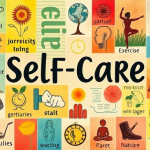
The Power of Saying No: How Boundaries Can Improve Your Mental Health
The Importance of Setting Boundaries

Setting boundaries is essential for maintaining healthy relationships and protecting your well-being. When you establish boundaries, you are clearly defining what is acceptable and what is not, which helps others understand your needs and expectations. By setting boundaries, you are asserting your autonomy and self-respect, which is crucial for fostering mutual respect in your interactions with others.
Without boundaries, you may find yourself feeling overwhelmed, drained, and taken advantage of. Setting clear boundaries allows you to prioritize your own needs and responsibilities, leading to a more balanced and fulfilling life. It is important to remember that setting boundaries is not selfish; it is an act of self-care and self-preservation that ultimately benefits both you and those around you.
• Setting boundaries is essential for maintaining healthy relationships and protecting your well-being.
• Establishing boundaries helps others understand your needs and expectations.
• Asserting your autonomy and self-respect is crucial for fostering mutual respect in interactions with others.
• Without boundaries, you may feel overwhelmed, drained, and taken advantage of.
• Setting clear boundaries allows you to prioritize your own needs and responsibilities for a more balanced life.
• Remember that setting boundaries is an act of self-care and self-preservation that benefits both you and those around you.
Recognizing Your Own Needs

Recognizing your own needs is a crucial aspect of self-care and overall well-being. It involves tuning into your emotions, thoughts, and physical sensations to understand what you require to feel balanced and fulfilled. By taking the time to reflect on your needs, you can gain clarity on what is truly important to you and prioritize actions that support your mental, emotional, and physical health.
Acknowledging your needs also involves setting aside any feelings of guilt or selfishness that may arise when focusing on yourself. It is essential to remember that taking care of your own needs is not only acceptable but necessary for your overall functioning and happiness. By recognizing and honoring your needs, you are better equipped to navigate life’s challenges and interactions in a more empowered and authentic way.
Learning to Prioritize Self-Care

Self-care is a vital aspect of maintaining overall well-being. It involves taking deliberate actions to care for oneself physically, mentally, and emotionally. Prioritizing self-care is not a luxury but a necessity to ensure that you are functioning at your best capacity. It can include activities such as exercise, getting enough sleep, eating nutritious foods, engaging in hobbies, spending time with loved ones, and seeking out support when needed.
By making self-care a priority, you are acknowledging your worth and investing in your own happiness and health. It is essential to carve out time in your busy schedule to focus on activities that recharge your mind and body. Neglecting self-care can lead to increased stress, burnout, and a decline in mental and physical health. Therefore, taking the time to prioritize self-care is a crucial step towards leading a fulfilling and balanced life.
Understanding the Impact of Overextending Yourself

Overextending yourself can lead to physical and emotional exhaustion. When you consistently take on more than you can handle, you may experience feelings of overwhelm and stress. This can manifest in various ways such as fatigue, irritability, and difficulty concentrating. Ignoring your limitations and pushing yourself beyond your capacity can ultimately take a toll on your well-being. It is important to recognize when you are overextending yourself and take steps to address this behavior before it leads to burnout.
Furthermore, overextending yourself can affect your relationships and overall productivity. Constantly saying yes to others’ demands without considering your own needs can result in resentment and strained connections. When you spread yourself too thin, you may not be able to fulfill your commitments effectively, leading to decreased performance and potential conflicts with others. By setting boundaries and learning to prioritize self-care, you can avoid the negative impact of overextending yourself and maintain a healthier balance in your life.
Acknowledging the Effects of People-Pleasing Behavior

People-pleasing behavior can have detrimental effects on our mental and emotional well-being. Constantly seeking approval and validation from others can lead to a lack of self-confidence and a diminished sense of self-worth. It can create a cycle of dependency on external validation, making it difficult to feel satisfied with oneself without the approval of others.
Furthermore, people-pleasing often results in sacrificing our own needs and priorities in order to meet the expectations of those around us. This can lead to feelings of resentment, exhaustion, and even burnout as we neglect our own well-being in favor of constantly trying to please others. Over time, this can erode our sense of autonomy and leave us feeling drained and unfulfilled.
Recognizing the Signs of Burnout

Burnout is a common issue that many individuals face in today’s fast-paced world. It can manifest in various ways, impacting not only one’s mental and emotional well-being but also physical health. One of the initial signs of burnout is a feeling of constant exhaustion, even after getting enough rest. Individuals may struggle to find the motivation or energy to complete daily tasks, leading to decreased productivity and a sense of being overwhelmed.
In addition to exhaustion, individuals experiencing burnout may also notice changes in their behavior and mood. Irritability, mood swings, and a general sense of apathy towards work or personal responsibilities are common indicators of burnout. Moreover, physical symptoms such as headaches, muscle tension, and digestive issues may start to manifest as the body reacts to prolonged stress and fatigue. Recognizing these signs early on is crucial in preventing further escalation of burnout and prioritizing self-care and mental health.
The Connection Between Boundaries and Mental Health

Establishing and maintaining healthy boundaries plays a crucial role in promoting positive mental health. When individuals are able to clearly define and assert their boundaries, it can help prevent feelings of overwhelm, anxiety, and resentment. Setting boundaries can empower individuals to prioritize their own well-being, leading to increased self-esteem and a sense of control over their lives.
Furthermore, boundaries act as a protective measure against emotional exhaustion and burnout. By recognizing and respecting personal limits, individuals can avoid taking on excessive responsibilities and feeling drained. This allows for a more sustainable approach to managing stress and maintaining mental wellness in both personal and professional aspects of life.
How Saying No Can Empower You

Learning to say no can be a powerful tool in taking control of your time, energy, and mental well-being. By setting boundaries and asserting your needs, you show others that your needs are just as important as theirs. Saying no can empower you to prioritize what truly matters to you and avoid feeling overextended or overwhelmed by taking on too much.
When you confidently decline requests or opportunities that do not align with your priorities, you reinforce your self-worth and strengthen your sense of agency. Remember, saying no does not make you selfish; it demonstrates that you value your own needs and self-care. Empower yourself by setting clear boundaries and honoring your limits, creating a healthier and more balanced approach to life.
Learning to Communicate Assertively

Learning to communicate assertively involves expressing your thoughts, opinions, and needs in a confident and respectful manner. It means advocating for yourself without being aggressive or passive. Assertive communication allows you to set clear boundaries and stand up for what is important to you. By communicating assertively, you can increase your self-confidence and improve your relationships with others.
When practicing assertive communication, it is essential to use “I” statements to express your feelings and needs directly. This technique helps to take ownership of your emotions and avoids placing blame on others. Additionally, active listening is crucial in assertive communication, as it shows respect and understanding towards the other person. By mastering assertive communication, you can navigate conflicts effectively and build healthier connections based on mutual respect.
Setting Clear Expectations with Others

Setting clear expectations with others is crucial in establishing healthy boundaries and fostering positive relationships. Communicating openly and honestly about what you need and expect from others can help avoid misunderstandings and resentment. When you are upfront about your boundaries and what is acceptable to you, it sets a precedent for how you want to be treated and respected by others.
By clearly outlining your expectations, you give others the opportunity to understand your needs and limitations. This open communication can lead to healthier dynamics and more fulfilling interactions with those around you. When everyone is on the same page and respects each other’s boundaries, relationships can flourish and thrive in a more harmonious way.
The Role of Boundaries in Healthy Relationships

Boundaries play a crucial role in maintaining healthy relationships. They serve as guidelines for acceptable behavior and help establish mutual respect between individuals. When boundaries are clearly communicated and respected, it creates a sense of safety and security within the relationship. This, in turn, fosters open communication and trust, ultimately laying the foundation for a strong and lasting connection.
Without boundaries, relationships can become strained and imbalanced. It is important for individuals to identify their personal limits and communicate them effectively to their partners. By setting boundaries, individuals can prevent feelings of resentment and protect their emotional well-being. Boundaries also help establish a sense of individuality within the relationship, allowing each person to maintain their autonomy while still being in a supportive and loving partnership.
Protecting Your Emotional Well-being

Setting boundaries is an essential aspect of safeguarding your emotional well-being. By clearly defining your limits and what is acceptable to you, you create a protective shield around your emotions. Boundaries help you establish a sense of control over your interactions and relationships, reducing the likelihood of being emotionally drained or overwhelmed by others’ demands and expectations. When you prioritize your emotional well-being through setting boundaries, you are empowering yourself to create a space where your feelings are respected and honored.
Additionally, protecting your emotional well-being through boundaries means acknowledging and addressing situations that may trigger negative emotions or stress. By recognizing these triggers and establishing boundaries to prevent or manage them, you take proactive steps to safeguard your mental and emotional health. This proactive approach allows you to navigate challenging circumstances with resilience and self-awareness, promoting a sense of inner peace and emotional stability.
Avoiding Resentment Through Setting Boundaries

Setting boundaries is crucial for avoiding resentment in our relationships. When we clearly communicate our limits and expectations to others, we prevent feelings of anger and frustration from building up. By being honest about what we can and cannot tolerate, we set the stage for healthy interactions with those around us.
When we establish boundaries, we take control of our own well-being and prevent others from overstepping their bounds. This proactive approach allows us to maintain a harmonious balance in our relationships by ensuring that our needs are also prioritized. By setting boundaries, we create a mutual understanding and respect that can help prevent resentment from festering and damaging our connections with others.
Creating a Balance Between Giving and Receiving

In the dynamic of human relationships, there exists a delicate equilibrium between giving and receiving. As individuals, we often find ourselves drawn to the act of giving, whether it be our time, resources, or emotions. However, it is crucial to remember that receiving is equally as important in maintaining a healthy balance. When we continuously give without allowing ourselves to receive in return, we risk depleting our own well-being and energy reserves.
Learning to accept help, compliments, and support from others is not a sign of weakness but rather a demonstration of self-awareness and value for oneself. By embracing the concept of reciprocity, we create a harmonious flow of energy in our interactions with others. This balance allows us to nourish our own needs while also fostering stronger connections with those around us. It is through this exchange of giving and receiving that we can cultivate deeper relationships, enhance our emotional well-being, and ultimately lead more fulfilling lives.
The Freedom in Setting Limits

Setting limits in your life is not about restricting yourself or denying opportunities; rather, it is about reclaiming your power and autonomy. By establishing boundaries, you are asserting your needs and values, making it clear to yourself and others what you are willing to accept and what you will not tolerate. This sense of clarity and control brings a newfound freedom that allows you to navigate life with purpose and confidence.
When you set limits, you are honoring your self-worth and prioritizing your well-being. By saying no to things that do not align with your values or deplete your energy, you are creating space for what truly matters to you. This freedom to choose how you spend your time and energy empowers you to live authentically and in alignment with your true self, fostering a sense of fulfillment and contentment in your life.
Learning to Listen to Your Intuition

Listening to your intuition is an essential skill that can guide you in making decisions that align with your true self. Your intuition acts as a compass, offering insights and nudges that may not always be logical but are often rooted in your deepest desires and values. Tuning into your intuition requires creating space for silence and reflection, allowing your inner voice to be heard amidst the noise of external influences.
By learning to trust your intuition, you can cultivate a sense of clarity and purpose in your life. Your intuition has a way of alerting you to potential risks or opportunities that may not be immediately apparent to your conscious mind. Paying attention to subtle cues and gut feelings can lead you towards paths that are more authentic and fulfilling. Embracing your intuition can also help you navigate challenges with greater resilience and insight, enhancing your overall well-being and sense of empowerment.
The Impact of Boundaries on Your Self-Esteem

Establishing and maintaining healthy boundaries plays a crucial role in nurturing a positive self-esteem. When you respect your own limits and communicate them assertively, you send a powerful message to yourself and others about your self-worth. By setting boundaries, you affirm that your needs and emotions are valid and deserve to be acknowledged. This practice cultivates a sense of empowerment and self-respect, which are essential components of a healthy self-esteem.
On the contrary, neglecting to set boundaries can lead to feelings of resentment, frustration, and overwhelm, ultimately taking a toll on your self-esteem. When you consistently overextend yourself, prioritize others’ needs over your own, or fail to assert your limits, you may start to feel depleted and undervalued. Over time, this pattern can erode your confidence and self-worth, leading to a negative impact on your overall self-esteem and well-being.
Developing a Strong Sense of Self-Worth

Learning to value and appreciate oneself is a crucial component in cultivating a strong sense of self-worth. It involves recognizing and celebrating your strengths, accepting your limitations, and embracing your uniqueness. By acknowledging your worth and believing in your capabilities, you are more likely to navigate life with confidence and resilience.
Self-worth is not about seeking validation or approval from others; it stems from within and is a reflection of your intrinsic value as a person. When you trust in your worth and treat yourself with kindness and compassion, you set the foundation for healthy self-esteem. Building a strong sense of self-worth empowers you to establish boundaries, make decisions that honor your well-being, and foster meaningful relationships built on mutual respect and understanding.
Overcoming Guilt Associated with Saying No

Setting boundaries and learning to say no are fundamental aspects of self-care and maintaining healthy relationships. Yet, many individuals struggle with feelings of guilt when they assert their needs and decline requests. Overcoming this guilt associated with saying no requires a shift in mindset and a recognition that prioritizing one’s well-being is not selfish, but rather necessary for overall mental and emotional health.
It is important to understand that saying no does not make you a bad person. In fact, setting boundaries and respecting your own limits can enhance your self-esteem and empower you to lead a more fulfilling life. By acknowledging that it is okay to prioritize yourself and your needs, you can overcome the guilt that may initially accompany asserting your boundaries. Remember, you are not obligated to say yes to every demand placed on you, and by learning to say no when necessary, you are taking proactive steps towards protecting your energy and emotional well-being.
The Long-Term Benefits of Establishing Boundaries

Establishing boundaries in your personal and professional life is not just a short-term solution for managing stress; it also yields long-lasting benefits that can significantly enhance your overall well-being. By clearly defining your limits and communicating them assertively, you cultivate a sense of self-respect and self-worth that forms the foundation for healthy relationships. Over time, this practice empowers you to navigate challenging situations with confidence and grace, as you become more attuned to your own needs and priorities.
Furthermore, setting boundaries allows you to protect your mental and emotional health in the long run. By learning to say no when necessary and avoid overextending yourself, you reduce the risk of burnout and resentment building up over time. This proactive approach enables you to create a balance between giving and receiving, fostering a sense of fulfillment and satisfaction in your interactions with others. Ultimately, establishing boundaries sets the stage for sustained personal growth and resilience, ensuring that you prioritize your well-being for the long haul.











